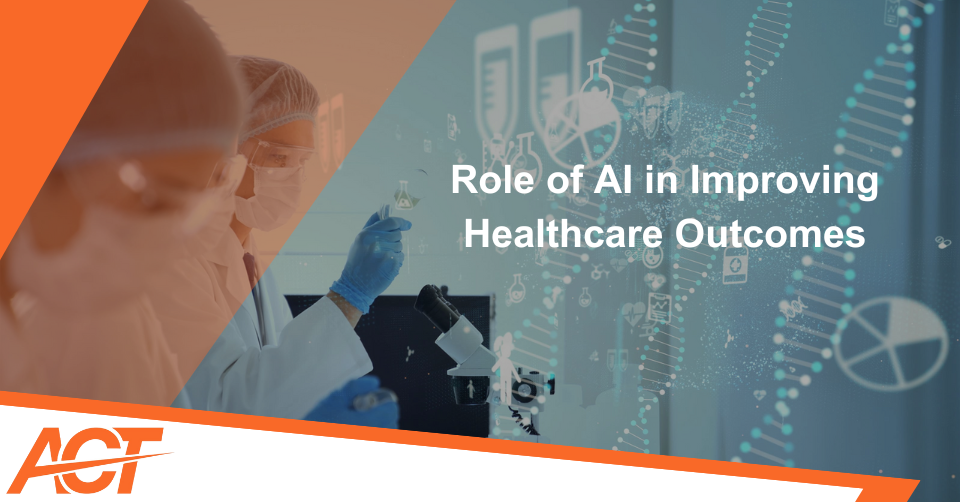- About
- Solutions
- Business Applications
- Digital Transformation Solutions
- Information Technology Systems
- Data Center Solutions
- Extra Low Voltage Systems
- Structured Cabling Systems
- View All Solutions
- News & Events
- Careers
- Contact Us
english عربيnavigationBlog
October 10, 2023
Leveraging Artificial Intelligence for Better Healthcare Outcomes
Artificial Intelligence (AI) has brought about transformative changes across various industries, and healthcare is no exception. Integrating AI technologies in the healthcare sector holds immense promise for improving patient outcomes. By rapidly and accurately analyzing vast amounts of data, AI can empower healthcare professionals to make informed decisions, resulting in more precise diagnoses and treatment plans.
Early Detection and Diagnosis
One of the critical areas where AI can revolutionize healthcare is early detection and diagnosis. When fed with patient data such as medical records and symptoms, AI algorithms can discern patterns that might elude human doctors. This has the potential to lead to the early detection of diseases like cancer or cardiovascular conditions, significantly increasing the chances of successful treatment.
Personalized Medicine
AI-driven systems can provide personalized medicine by considering individual patient characteristics, including genetics, lifestyle factors, and medical history. This tailored approach ensures that patients receive treatments that are not only effective but also reduce the risk of adverse reactions or ineffective interventions.

Continuous Patient Monitoring
AI continuously analyzes real-time data from wearable devices or sensors and enhances patient monitoring. This capability enables the early identification of changes in a patient's condition, allowing for timely intervention before a severe health event occurs.
Streamlined Healthcare Delivery
In addition to improving patient care, AI can boost efficiency in healthcare delivery. Tasks like appointment scheduling and billing processes can be automated, freeing valuable time for healthcare professionals to focus on direct patient care. This automation ultimately leads to an enhancement in the overall quality of care.
Addressing Challenges
While the benefits of AI in healthcare are undeniable, it is essential to acknowledge and address potential challenges. Privacy concerns related to sensitive health information must be addressed through robust security measures and stringent regulations. Additionally, some healthcare professionals may be resistant, fearing that AI will replace their roles rather than complement them.
In conclusion, the role of AI in improving healthcare outcomes cannot be overstated. Its ability to analyze data while offering personalized care options has the potential to transform healthcare services swiftly and accurately. By embracing AI technologies and implementing proper safeguards, we can harness its power to enhance patient outcomes, improve efficiency, and save lives.
related news
Blog
01 December 2023
5G Technology: Transforming the ICT Industry and Beyond.
5G technology has a revolutionary impact on the ICT industry and beyond. Its impact can be seen in various areas, including mobile broadband, fixed wireless access (FWA), the Internet of Things (IoT), cloud computing, edge computing, and different industries. Let's delve into the details of its impact.
read full articleBlog
03 November 2023
The New Era of the F&B Industry
Digital technologies have undeniably revolutionized the Food and Beverage (F&B) industry, reshaping the way businesses operate and interact with customers.
read full articleBlog
26 October 2023
Green IT
Green IT has emerged as a critical imperative for businesses and organizations worldwide in an era of rapid technological advancement.
read full articleBlog
12 October 2023
How Hotel Mobile Check-In Improving Guest Experiences
hotel mobile check-in stands out as a remarkable transformation that streamlines the check-in process, empowers guests with greater control.
read full articleBlog
15 June 2022
Artificial Intelligence Technology
Artificial intelligence technology has come a long way. In this article, we'll explore the pros and cons of AI.
read full article